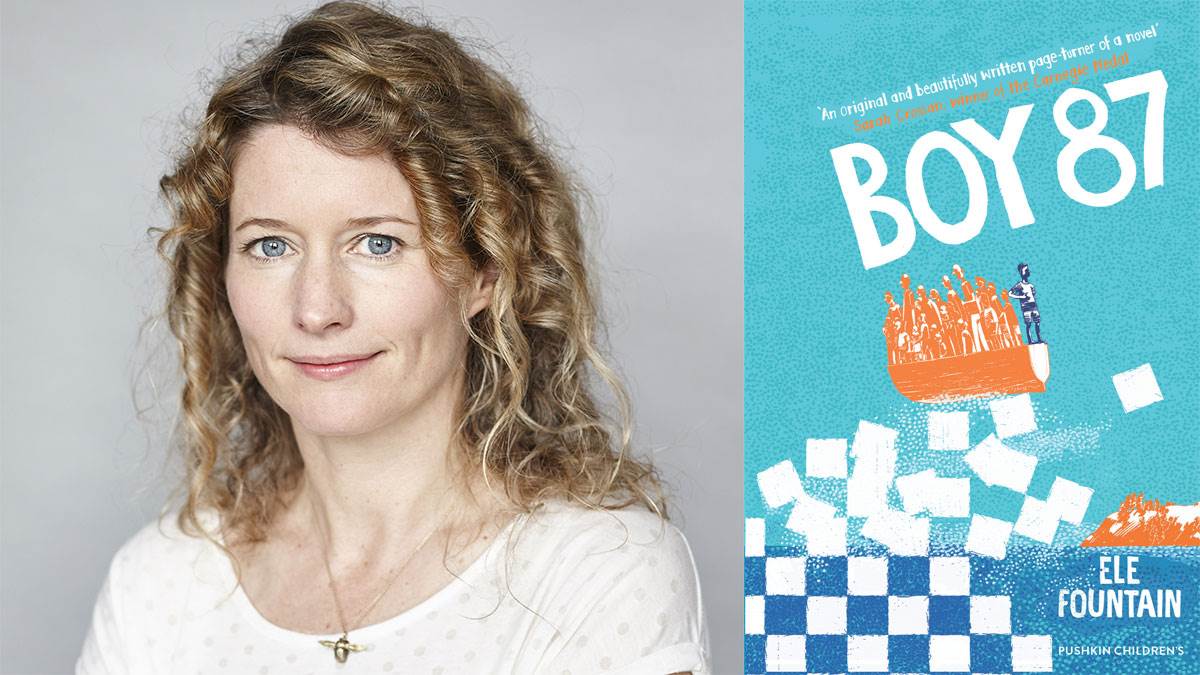Talking about the refugee crisis: 'For the first time, I truly understood the need to write'
Published on: 22 August 2018 Author: Ele Fountain
Author Ele Fountain explains what inspired her to write Boy 87: a gripping tale about a child forced to leave his mother and little sister, and set off on a dangerous journey.

My inspiration for Boy 87 began when I was living far from home. Four years ago, I moved to Ethiopia with my husband, baby and two-year-old. While we were there, a state of emergency was declared after anti-government riots. We were on lockdown in the capital Addis Ababa for a few weeks. The internet was shut down, and, briefly, the phones too. New laws said you could be put in jail just for criticising the government.
There were systems in place to help us leave the city – and country – if we needed to. We were never really at risk, but the experience changed me. Why should I be able to leave if I was in danger, but not my Ethiopian friends?
'Refugees clinging to boats'
Our move to Africa also coincided with the height of the refugee crisis. There were images on UK news showing refugees clinging to boats in the Mediterranean, empty lifejackets drifting nearby. Everyone I knew was shocked by what they saw, but many didn’t know why people were risking their lives in this way, or that crossing the Mediterranean was often the end of a much longer journey, started months before.
Increasingly, what we heard was how many people had been on each boat. I wanted to hear about who was on those boats, and why they were there. People don’t make perilous journeys unless they are leaving something worse behind.
Before moving to Ethiopia, I was a children’s book editor for 15 years. I’d often spoken to authors about their inspiration, but I never thought I’d have any of my own. Now I realised there was a story I wanted to tell: the story of a boy who had left everything he knew in search of safety. That story was Boy 87. For the first time, I truly understood the need to write.
A story about strength and hope
I immediately knew where the book would be set, and also that I wouldn’t name that country. There are many clues in the story, if the reader wants to find out. All the places exist and Shif’s journey can be traced on a map from start to end. I wanted the focus to be on his experience rather than the politics of one particular regime. Also, Shif’s story has echoes for children in many parts of the world today.
It’s easy to think that a book about a refugee must be bleak. There are difficult moments in Boy 87, but overall it is a story about the strength of the human spirit, and about hope.
In Addis Ababa, children would run up to my youngest daughter in the street and kiss her hand and stroke her face. There was a strong sense of how precious life was – even older children felt that younger children were precious.
In northern Ethiopia, I was introduced to a man who had been born shortly after the devastating famine of the 80s. His older siblings had died. He told me that his parents had suffered, but that they must have chosen a good name for him, because he had survived. His name meant, roughly, ‘protector of children’.
Read our recommended reads for children about refugees and asylum seekers
Topics: Around the world, Refugees/asylum, Writing, Features






Add a comment